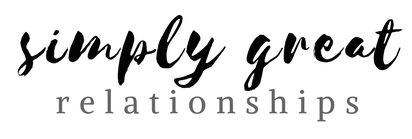Typically when we think about “relationship breakers,” we think of “big” issues like infidelity, constant fighting, loss of love, and a lack of intimacy.
Reality: they don’t happen overnight. These bigger issues are often the result of what John Gottman calls “The Four Horsemen of the Apocalypse.”
Criticism, defensiveness, contempt, and stonewalling are communication tactics that cause damage in relationships. We’re all guilty of using these from time to time - the trouble starts when they become our main ways of communicating. Once that happens, our relationship develops a tone of negativity, combativeness, and disrespect. Neither partner feels heard or understood and they start to turn away from one another.
Couples resort to these tactics when they are not feeling important, valued, or cared for. They pull out these “big guns” in hopes of getting their partner to meet their needs, but it actually has the opposite effect.
Today we’re giving you the antidotes to these damaging communication tactics, better strategies for getting your needs met, and ways to reduce triggers during conflicts with your partner. Be sure to download your free bonus - the ultimate cheat sheet from The Gottman Institute for keeping The Four Horsemen of the Apocalypse and their antidotes in mind.
Listen:
Watch:
Show Notes
Short on time? Here's a list of today's topics and when to listen:
The Four Horsemen of the Apocalypse - 1:00
Criticism - 1:29
Defensiveness - 1:45
Stonewalling - 2:21
Contempt - 2:44
Why we resort to The Four Horsemen - 7:32
What The Four Horsemen invite from your partner - 10:35
Antidotes for The Four Horsemen - 13:00
“I” statements - 13:53
Take accountability + validate your partner - 16:09
Physiological self-soothing - 17:58
State your own needs + feelings - 21:03
Trigger words - 25:51
Meredith + Marina’s takeaways - 33:55
Disclaimer:
Silveron Productions LLC and Nassau Wellness Marriage and Family Therapy PLLC do not hold itself out to be your psychologist, psychiatrist, psychotherapist, or social worker. Our content is provided for informational and educational purposes only and is not to be perceived or relied upon as medical or mental health advice, diagnosis or treatment. Do not use our content in lieu of professional advice given by qualified medical and mental health care professionals and do not disregard professional medical or mental health care advice or delay seeking professional advice because of information you have received from us. Always seek the advice of your physician or other qualified mental health provider with any questions you may have regarding a medical condition or mental disorder. If you think you may have a medical or mental health emergency, call your professional caregiver or 911 immediately. We do not recommend or endorse any specific tests, physicians, psychologists, psychiatrists, psychotherapists, social workers, products, procedures, opinions, or other information that may be mentioned in our content. By viewing our content, you acknowledge and agree that the following warnings and disclaimers apply to all of our content and agree to indemnify and hold Nassau Wellness and all content participants for any and all losses, injuries, and damages resulting from any and all claims that may arise from your use or misuse of the content.
By viewing our content, you further acknowledge that you are doing so voluntarily and at your own risk, and that you are solely and personally responsible for your choices, actions, and results, now and in the future. You accept full responsibility for the consequences of your use or non-use of any information provided in our content. Nassau Wellness is not liable for any advice or information provided in our content, all of which is provided on an “as-is” basis. No warranties, either express or implied, are made regarding the information we provide, and Nassau Wellness makes no representations about the accuracy or the suitability of our content. Opinions and other statements expressed by third-parties are theirs alone.


